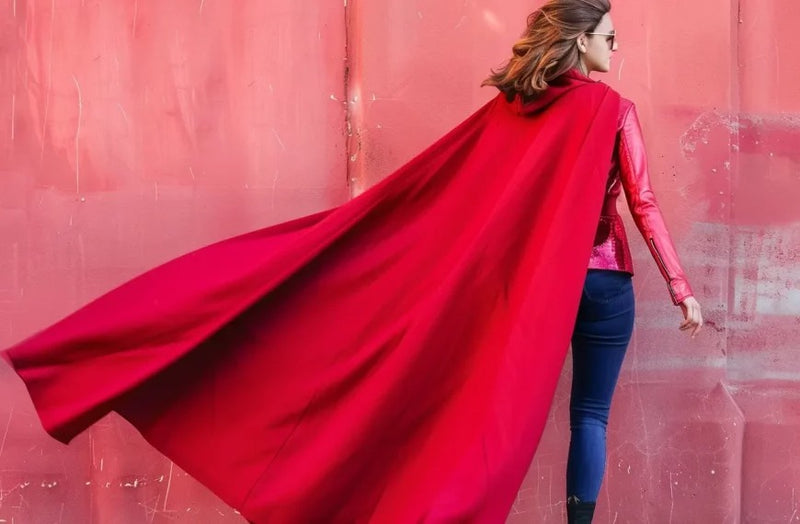
Are you ready to elevate your style and unleash your inner superhero? Look no further than this versatile and timeless cape! But before diving into the world of capes, it's crucial to choose the best fabric that complements your look and provides the comfort and durability you need.
In this article, we will explore the best fabric for a cape, highlighting its characteristics and helping you make an informed decision that fits your personal style and needs. So buckle up and embrace your inner fashion warrior. Let's journey to find the perfect fabric for your cape.
Key Takeaways
- Choose durable fabrics like wool or polyester blends for frequent use and easy maintenance.
- Opt for soft, breathable materials like cotton for comfort during extended wear.
- Consider weather-appropriate fabrics, such as wool for warmth or water-resistant polyester for rainy conditions.
- Select fabrics that are easy to care for, like machine-washable and quick-drying options.
- Ensure the fabric matches the cape's purpose, with luxurious materials for fashion and sturdy, functional fabrics for outdoor use.
Factors to Consider When Choosing Cape Fabric
When selecting fabric for your cape, consider its durability and resistance to wear and tear. It's also important to consider your comfort.
Lastly, consider the maintenance and visual appeal of the fabric.
Durability
Fabric durability is crucial if you plan to wear your cape frequently or engage in activities that could test its resilience. Look for materials with a high resistance to tearing, stretching, and pilling. This ensures your cape maintains its quality over time.
Fabric weight and thickness are also critical indicators of durability. Heavier fabrics usually withstand wear and tear better than their lighter counterparts.
Comfort
When choosing a cape, consider the fabric's feel, suitability for extended wear, and durability. Comfort can greatly enhance your experience.
Additionally, choosing lightweight materials is crucial. A lightweight cape allows for ease of movement. It ensures you're not weighed down or restricted in your activities.
It's not just about the aesthetic. The fabric of your cape should offer a cozy, comfortable wearing experience, turning it into a piece you'll love to wear time and again.
Weather Appropriateness
Your choice of fabric for a cape should take into account the weather, ensuring it's suitable for your conditions. Consider using wool or polar fleece to keep you warm during the chilly winter months. These materials are ideal for insulation against the cold.
On the other hand, if you're looking for versatility that can adapt to various weather conditions, opt for washable cotton velvet or a polyester blend. These fabrics offer a good balance between comfort and practicality.
Nothing beats water-resistant polyester microfiber for rainy or moist conditions. It ensures you stay dry despite the weather.
Maintenance
When choosing fabric for your cape, select options that are easy to maintain. This ensures you can effortlessly clean and care for it.
Look for machine-washable fabrics that are wrinkle-resistant. This will ensure that your cape remains neat without taking too much time to care for it.
Furthermore, it is vital to opt for fabrics that dry quickly and keep their shape and color after multiple washes. This durability means your cape will last longer and look as good as new each time you wear it.
Visual Appeal
Moving beyond maintenance, it's equally important to consider the visual appeal of your cape's fabric. Focusing on sheen, drape, and color will ensure your costume stands out.
Fabric weight and drape are crucial. A lighter fabric will flutter elegantly, while a heavier one mightn't achieve the same effect. Additionally, the color and pattern of the fabric should align with your visual aesthetic, whether you aim for bold and vibrant or subtle and sophisticated.
Best Fabric for a Cape: Natural Fabrics
When choosing a fabric for your cape, consider natural options like cotton, wool, and silk. Each offers unique benefits.
1. Cotton
 Cotton is an excellent option for its breathability and comfort. When it comes to making a cape that feels as good as it seems, you can't go wrong with cotton. It's a versatile fabric that serves as the main cape fabric but also works wonderfully as a lining fabric, giving your cape an extra layer of comfort.
Cotton is an excellent option for its breathability and comfort. When it comes to making a cape that feels as good as it seems, you can't go wrong with cotton. It's a versatile fabric that serves as the main cape fabric but also works wonderfully as a lining fabric, giving your cape an extra layer of comfort.
Cotton is easy to work with, whether you're a beginner or experienced in sewing. Plus, its ease of care ensures your cape remains in top condition after multiple washes. With a wide range of colors and patterns, you can personalize your cape, making it truly unique.
2. Wool
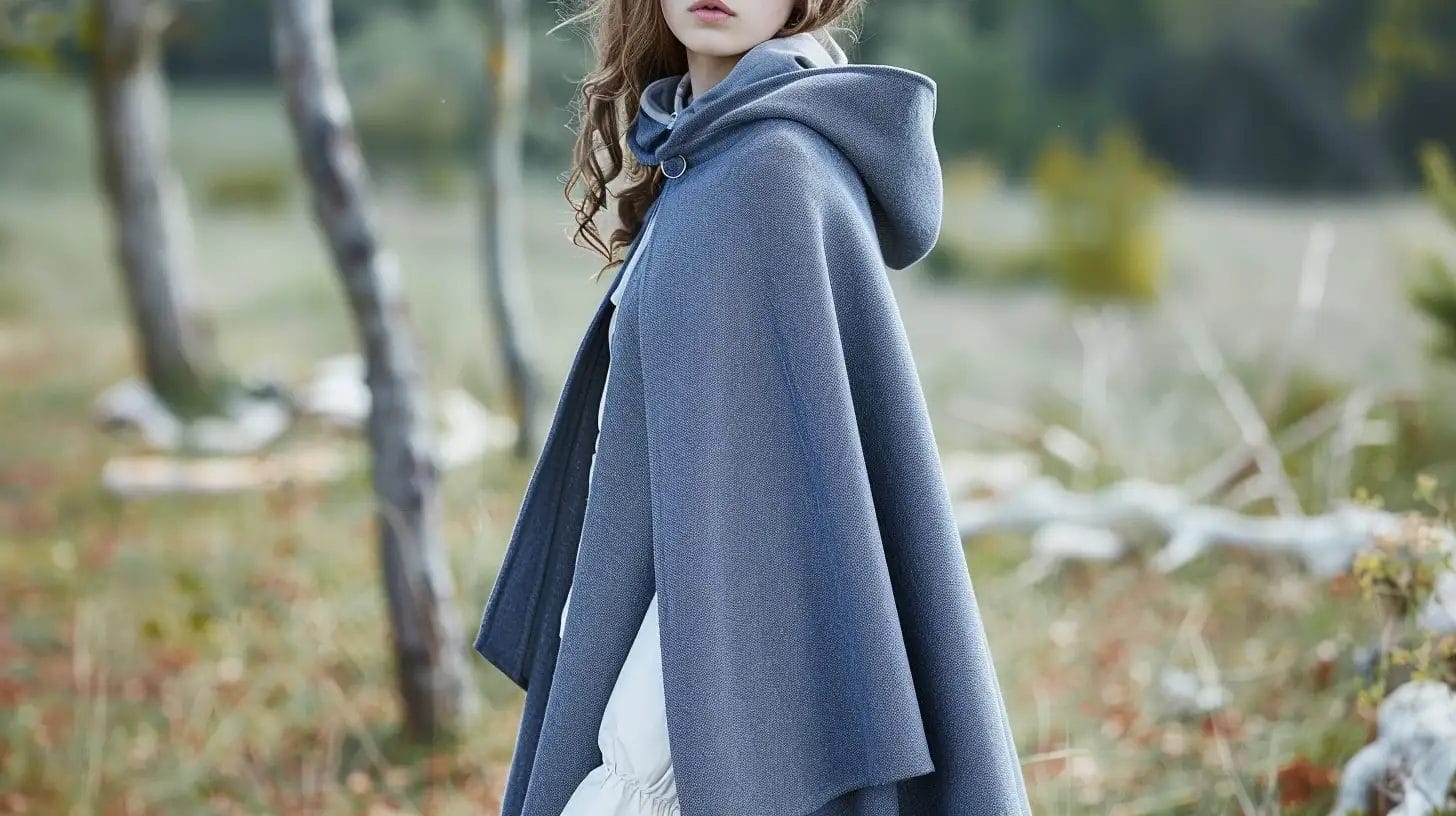 Wool stands out for its unmatched warmth and durability. This makes it an ideal choice for cape materials.
Wool stands out for its unmatched warmth and durability. This makes it an ideal choice for cape materials.
Wool's natural fibers provide excellent insulation. It ensures you stay warm in the coldest weather without feeling weighed down. This fabric's breathability also helps regulate your body temperature, keeping you comfortable in varying climates.
Additionally, wool's versatility is evident in its ability to dye in a variety of colors, creating a wide range of cape designs.
3. Silk
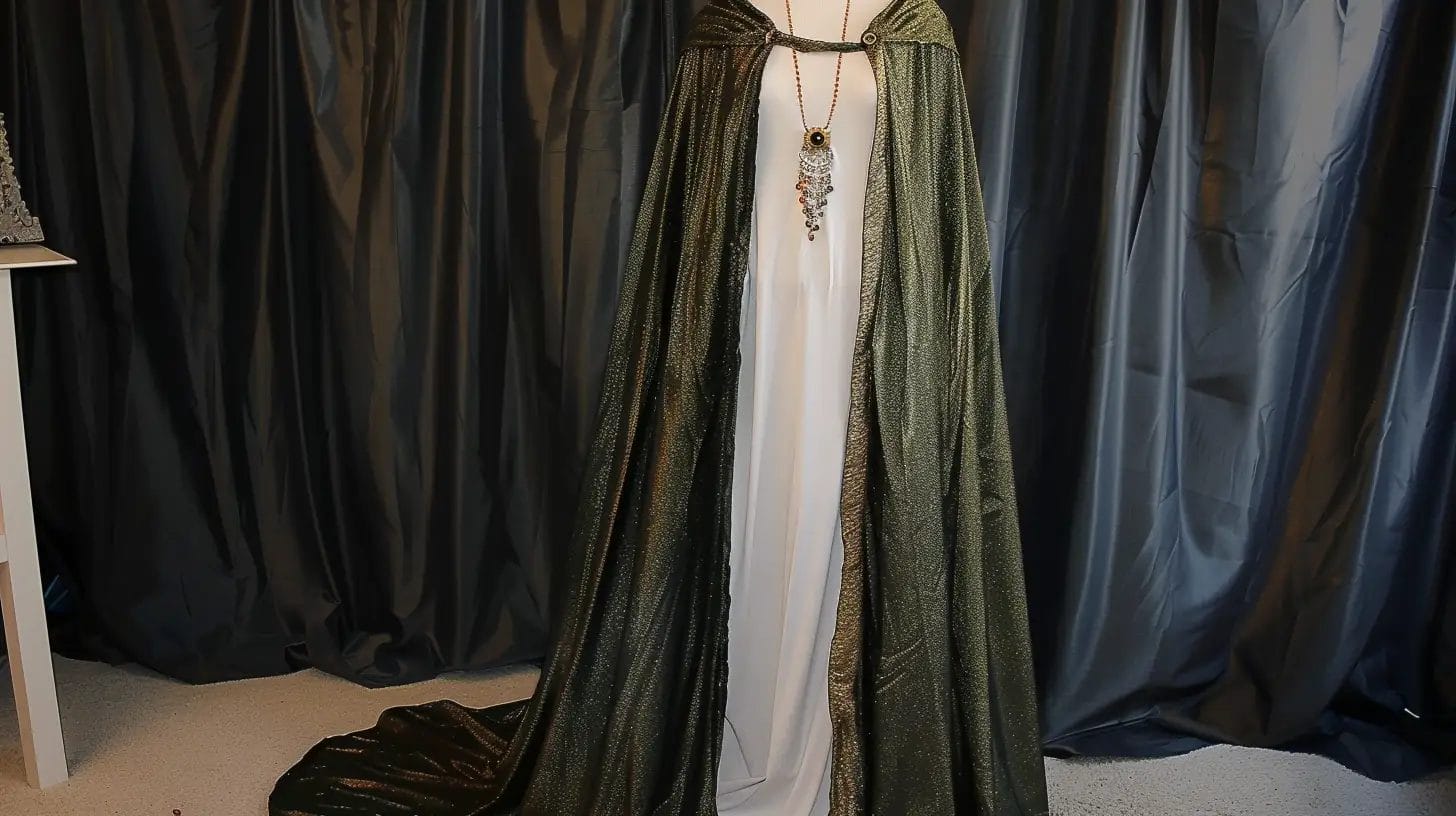 Silk, a natural fabric, offers an unparalleled blend of luxury and elegance for capes. It is characterized by its smooth texture and exquisite drape. This luxurious material isn't just about looks. It's also breathable, making it a versatile choice for both warm and cool weather.
Silk, a natural fabric, offers an unparalleled blend of luxury and elegance for capes. It is characterized by its smooth texture and exquisite drape. This luxurious material isn't just about looks. It's also breathable, making it a versatile choice for both warm and cool weather.
But remember that silk requires delicate care. Dry-cleaning usually preserves its beauty and longevity, ensuring that your elegant cape remains a wardrobe staple.
Best Fabric for a Cape: Synthetic Fabrics
When considering the creation of your cape, you can't ignore synthetic fabrics like polyester, nylon, and acrylic. These materials offer durability and ease of care, making them stand out for everyday and special occasions.
4. Polyester
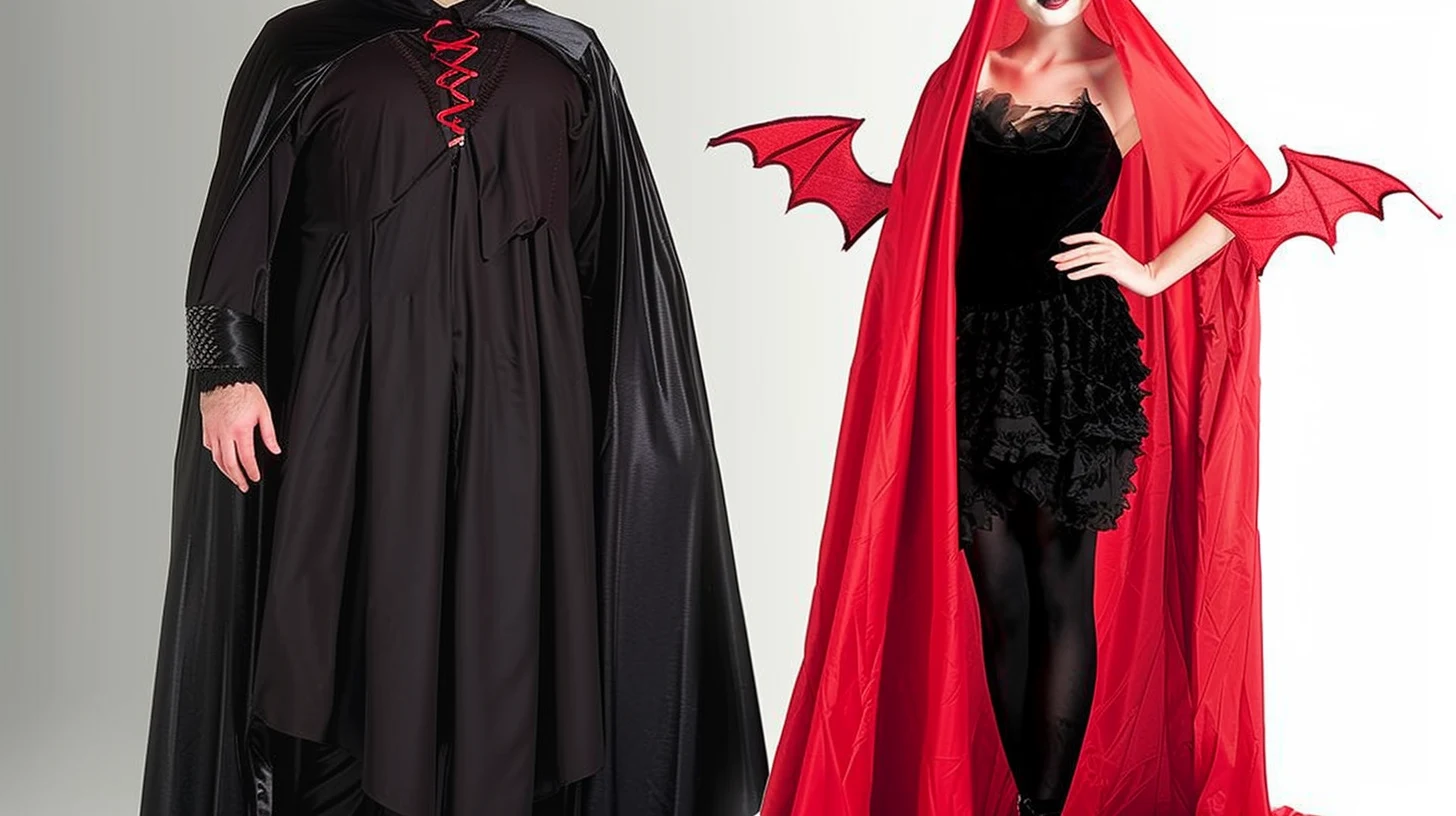 Polyester, a synthetic fabric, stands out for its durability and wrinkle resistance. These qualities are incredibly appealing when designing capes for costumes or fashion statements.
Polyester, a synthetic fabric, stands out for its durability and wrinkle resistance. These qualities are incredibly appealing when designing capes for costumes or fashion statements.
Its affordability means you won't break the bank while selecting from a kaleidoscope of colors to match your vision perfectly. Polyester capes provide the flexibility and ease of care you'll appreciate, as well as being machine washable and quick to dry. This lightweight fabric ensures you'll remain comfortable no matter how long you wear your cape.
Moreover, polyester can mimic luxurious fabrics like silk. It can give your cape a high-end look without the hefty price tag.
5. Nylon
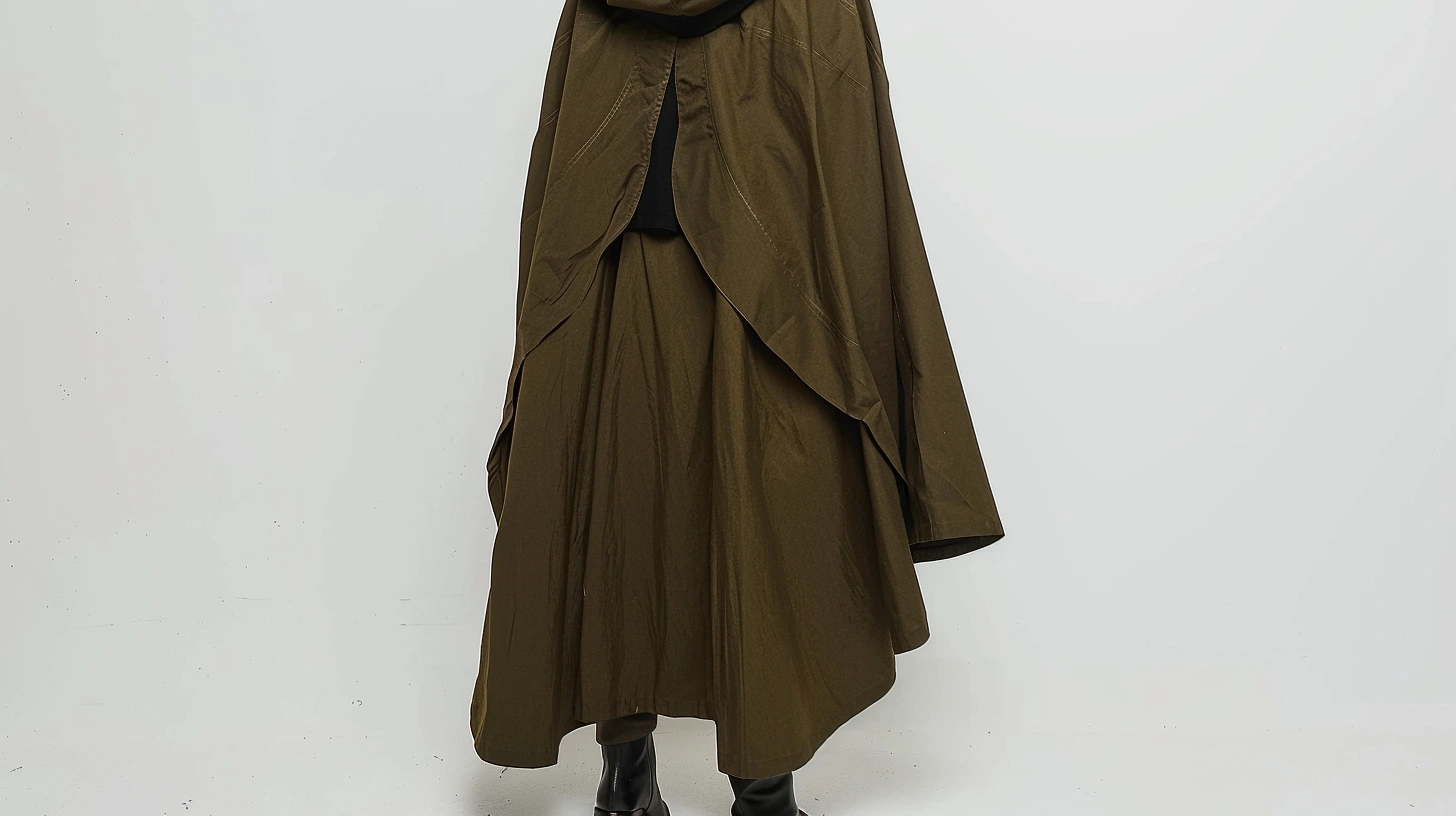 Nylon stands out not just for its robustness but also for its ability to repel water. This fabric ensures your cape remains dry and intact in various weather conditions. Its lightweight nature and quick-drying properties mean that even if your cape does get wet, it won't stay that way for long.
Nylon stands out not just for its robustness but also for its ability to repel water. This fabric ensures your cape remains dry and intact in various weather conditions. Its lightweight nature and quick-drying properties mean that even if your cape does get wet, it won't stay that way for long.
Additionally, nylon is remarkably easy to care for. A simple machine wash will do the trick, maintaining its vibrant colors and structure over time. With nylon, you're not just choosing a fabric that'll endure the elements. Instead, you're opting for a material that will keep your cape looking bright and bold, no matter the occasion.
6. Acrylic
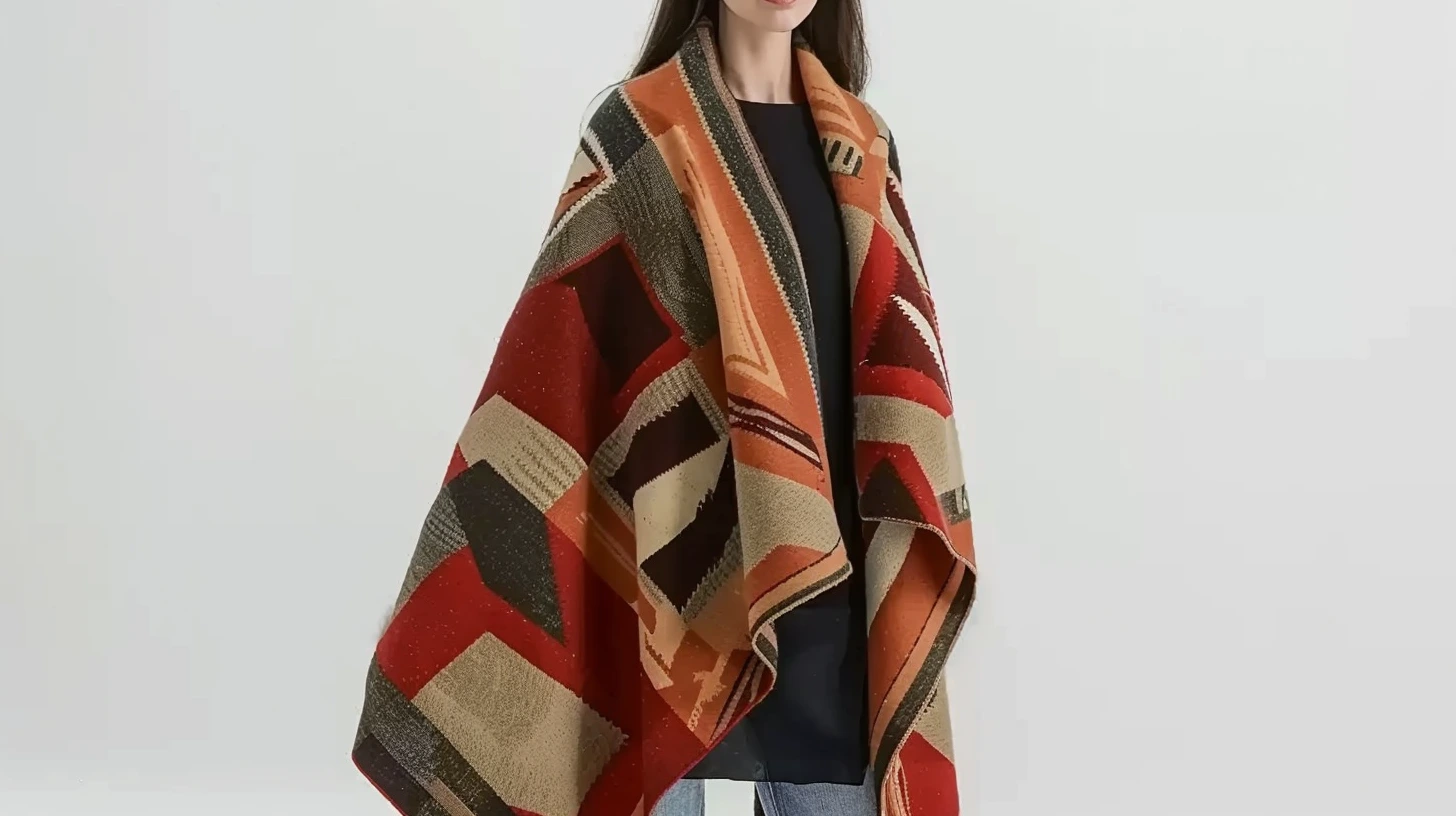 Acrylic, a versatile synthetic fabric, is affordable and readily available for crafting capes. No matter the cape length you choose, its lightweight nature ensures you don't feel weighed down, allowing for fluid, superhero-like movements.
Acrylic, a versatile synthetic fabric, is affordable and readily available for crafting capes. No matter the cape length you choose, its lightweight nature ensures you don't feel weighed down, allowing for fluid, superhero-like movements.
Unlike wool fabric, acrylic is machine washable. This makes it a breeze to keep your cape looking its best without going to the dry cleaners. Although acrylic may not offer the same warmth as wool, its ability to replicate the appearance of natural fibers allows you to customize your style for any costume without exceeding your budget.
Specialty Fabrics
Beyond traditional materials, specialty fabrics like velvet, leather, and waterproof options offer unique benefits for your cape.
7. Velvet
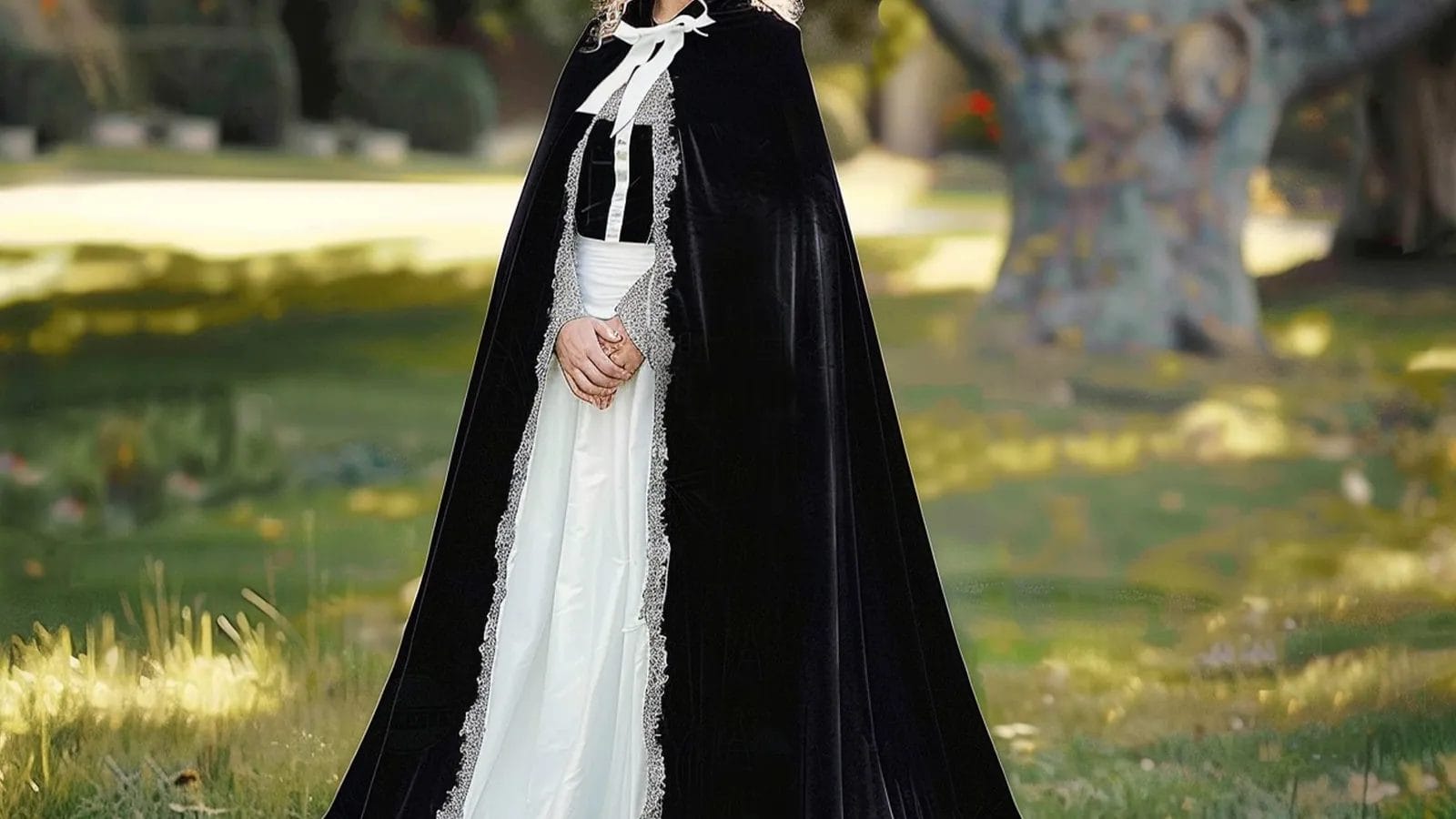 While velvet boasts a luxurious texture, it's not ideal for crafting capes because it tends not to hang as gracefully as other fabrics. You might want to steer clear of velvet if you're a costume designer looking for fabric without the heft yet desiring a dramatic effect for a full-circle cloak or cape.
While velvet boasts a luxurious texture, it's not ideal for crafting capes because it tends not to hang as gracefully as other fabrics. You might want to steer clear of velvet if you're a costume designer looking for fabric without the heft yet desiring a dramatic effect for a full-circle cloak or cape.
Despite its rich appearance, crushed velvet, in particular, may not provide the flow or ease of movement you're after. Instead, consider alternatives like felted wool, which offers warmth and a better drape.
8. Leather
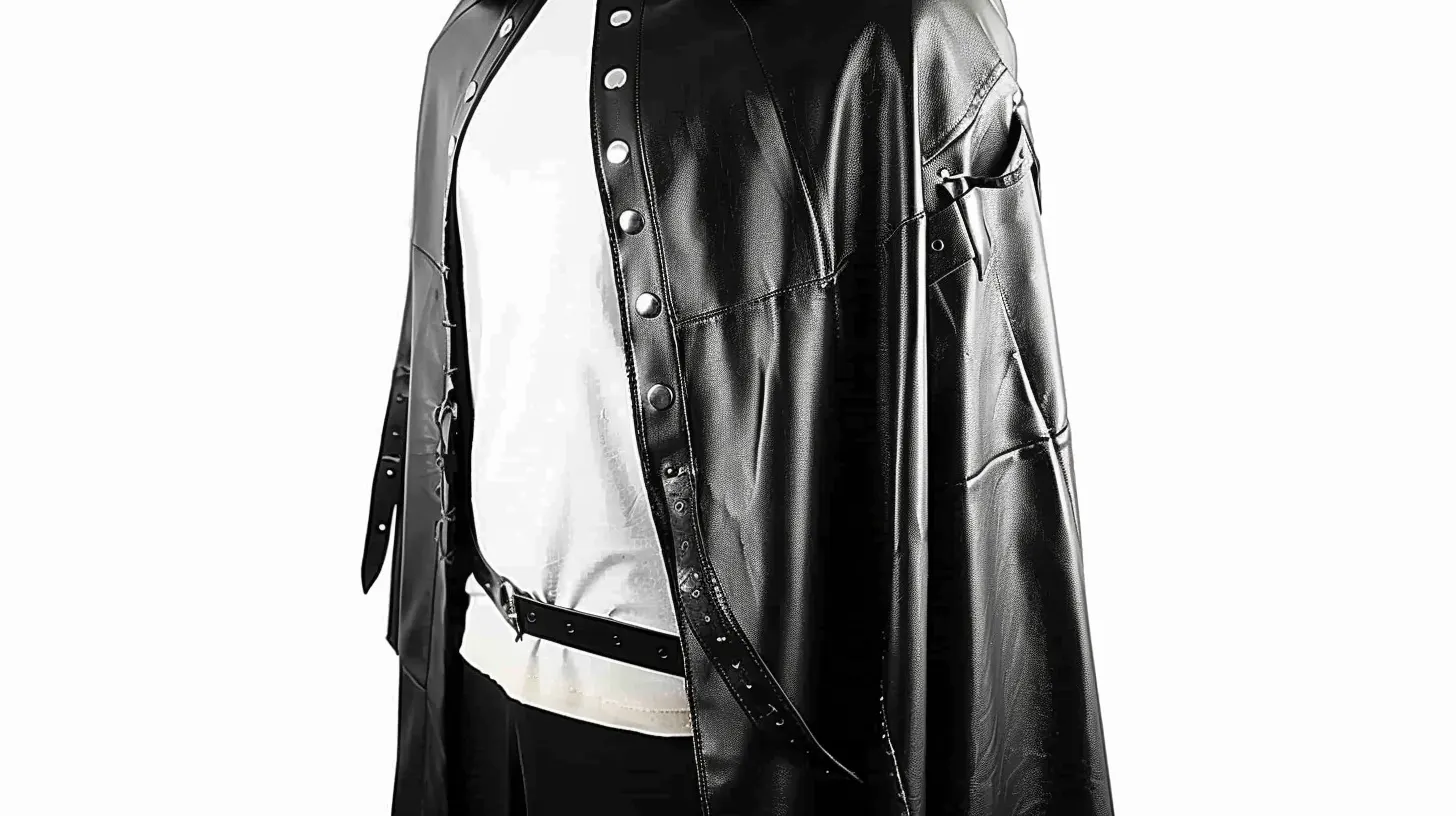 Shifting the focus to specialty fabrics, leather offers a distinct and durable choice for those aiming to craft an unforgettable cape. Its unique look and feel provide a luxurious and sophisticated appearance, perfect for creating stand-out capes.
Shifting the focus to specialty fabrics, leather offers a distinct and durable choice for those aiming to craft an unforgettable cape. Its unique look and feel provide a luxurious and sophisticated appearance, perfect for creating stand-out capes.
Whether you're going for sleek and modern or rugged and adventurous styles, leather's versatility allows for various designs that suit any personality. However, it's important to pay attention to the weight of the leather to ensure your cape offers both comfort and ease of movement.
9. Waterproof Fabrics
For those planning adventures in unpredictable weather, waterproof fabrics offer the perfect solution to stay dry and comfortable. These materials, including polyester microfiber, nylon, and Gore-Tex, come with a durable water-repellent (DWR) coating. During downpours, this special layer ensures your protection by keeping moisture out.
Whether hiking, camping, or attending an event where rain might appear, waterproof fabrics are your go-to choice. They're essential for anyone looking to brave the elements without sacrificing comfort.
Considerations for Different Uses of Capes
When choosing fabric for your cape, it's crucial to consider its purpose. Whether you're crafting a fashion statement, a costume for a special occasion, or a functional piece for everyday wear, the fabric's properties can make or break your project.
Tailoring choices based on these needs ensures that your cape is not only stylish but also practical and comfortable for its intended use.
Fashion Capes vs. Costume Capes vs. Functional Capes
When choosing the best fabric for your cape, consider whether it's for fashion, costume, or functional use. Each has distinct requirements for style, durability, and weather resistance.
Fashion capes call for luxurious materials like wool, cashmere, or silk, emphasizing style and sophistication.
In contrast, costume capes lean towards synthetic fabrics such as polyester or nylon. They prioritize durability and ease of maintenance for events or cosplay.
For those needing protection from the elements, functional capes need water-resistant materials like Gore-Tex or polyester microfiber, ensuring you stay dry and comfortable.
Let your cape's purpose guide your fabric choice to fulfill its intended look, durability, and functionality.
Tailoring Choices Based on Fabric Properties
Understanding the properties of different fabrics is crucial when choosing the suitable material for your cape. It ensures that your cape meets your specific needs, whether it's for warmth, style, or weather resistance.
Remember that wool is superb for winter capes due to its insulation when looking through the fabric glossary for your next project. For a versatile approach, consider polyester-blend fabric, which offers durability and ease of care.
If crafting a full-circle cloak, ensure the fabric width exceeds the back length by at least 6 inches for an elegant drape. Mind the weight that full lining adds, especially in woolen capes.
Lastly, don't overlook the importance of cape closures. They're not just functional but can also add an aesthetic touch to your creation.
Conclusion
In conclusion, finding the perfect fabric for your cape involves balancing durability, comfort, weather suitability, ease of maintenance, and style.
Whether you lean towards natural fibers for their comfort and breathability or synthetic and specialty fabrics for their resilience and weather resistance, remember to consider your cape's purpose.
Opt for materials that not only meet your practical needs but also enhance your cape's look and feel, ensuring it's both functional and fashionable.
Learn more about fabric knowledge at Longan Craft Blog, and dive into the fabric world with Longancraft!

0 comments